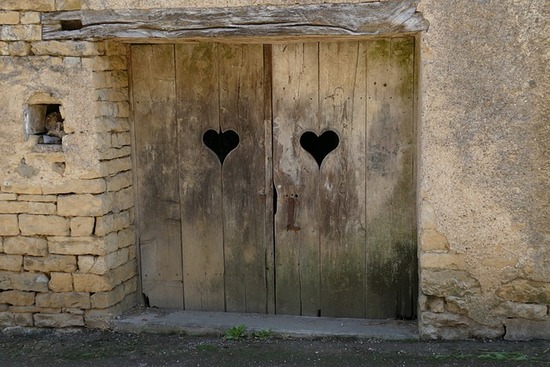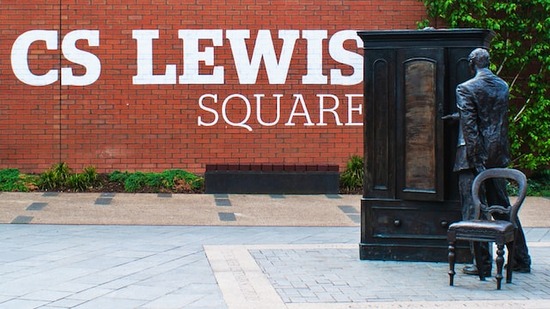Salvation, or being saved, is what God wants for all of us. And since God created us with free will, this salvation is ultimately our choice. We become “saved” by accepting that Jesus Christ died on the cross, taking the punishment meant for sinners upon Himself. And since God is always listening, all we have to do to accept this gift is to tell God, “Yes. I accept.”
Seems simple enough. Almost too simple. Is that really all that’s involved in accepting Jesus Christ as our personal savior?
It is indeed all we have to do.
And there’s nothing else we can do to earn salvation, or even to make us more save-able. Salvation involves an act of faith—we’re placing our lives in the hands of God when we accept Jesus’ gift.
But there is so much more to the story of why we need to be “saved” to begin with, how we’re saved, what we’re saved from, and what it truly means to accept Jesus’ selfless sacrifice.
So let’s get into detail about:
- What it means to be saved
- What we are saved from
- How salvation is received
- How salvation works, and how it affects us
- Stories of salvation
- What do I do next?
We’ll start by looking at the concept of being “saved” by a holy, all-powerful Savior.
What does it mean to be saved?
Salvation is a beautiful gift from God, through Jesus Christ, who died so that we might live. And we’re saved by having faith that Jesus’ act of love was enough—there’s nothing any of us could do to save ourselves.
“For you are saved by grace through faith, and this is not from yourselves; it is God’s gift—not from works, so that no one can boast” (Ephesians 2:8-9, CSB).
So being saved involves a choice of surrender. We can’t save ourselves, and God wants to redeem us, so we invite Him into our hearts to do so.
This means that we no longer rely on our own efforts to make ourselves into better, happier, more fulfilled people. We realize that we can’t win against sin and temptation by our own power—it just doesn’t work (Romans 3:23). Our fallen nature makes it impossible—unless God is involved in our lives, making us “justified freely by His grace through redemption that is in Jesus Christ” (Romans 3:24, CSB).
That’s the beauty of salvation. As we are now, we don’t deserve it. But God looks at our true identities, as He made us, before sin came into the picture. And since He loves us and wants us to be reconciled to Him, He offered to pay the debt that sin brought upon us (Romans 6:23). And He paid this through His death on the cross.
But what exactly is this “debt” that sin created? And what put us in need of salvation in the first place?
What are we saved from?

Photo by Letizia Bordoni on Unsplash
Romans 6:23 tells us that the “wages of sin is death, but the gift of God is eternal life in Christ Jesus our Lord” (CSB).
But what exactly is sin, and what does it mean to be saved from it?
Sin is disobeying God’s law of love (1 John 3:4). And we’re even told that “God is love” (1 John 4:16). But sin is like the opposite of love.
Humans were originally created by God with the capability to love and to be relational beings. Sin disrupts that purpose.
Because we also have the capacity for choice, which means we have the option to choose the opposite of love—selfishness.
And when this happens, it creates a rift between us and God. Just like an act of outright selfishness negatively affects any loving relationship.
We can see this effect when we look at what Adam and Eve did after they committed the first sin. As soon as God approached them, they hid (Genesis 3:8).
So you can see why a loving God would want to save His children from an existence tainted by sin. It ruins relationships. And ultimately, it leads to death—because eventually, God will destroy Satan, evil, and sin (Revelation 21:8). And we don’t want to be still holding onto those things when He does.
But salvation, a gift we can freely accept from Jesus, frees us from the ultimate consequences of sin (Revelation 20:6). It gives us the chance to be reconciled to the one we ultimately sinned against. So when this world ends and Jesus returns for us, we who have accepted Him will be resurrected, given new and perfect bodies, and we’ll live with Him forever as He originally intended—first in heaven, and then on the earth created anew (Revelation 21:1).
God’s salvation is an amazing and incredible concept that is also the ultimate demonstration of selfless, unconditional love.
And how does it work? Is believing and accepting Jesus all it takes to become saved?
Receiving salvation through faith, not works

Image by Eveline de Bruin from Pixabay
As big and as wonderful as salvation is, it’s actually a simple process. If you sincerely believe in Jesus, you’ll be saved.
And the Bible makes it very clear that our salvation comes solely from the grace of God and the sacrifice of Jesus.
“I do not set aside the grace of God; for if righteousness comes through the law [good deeds], then Christ died in vain” (Galatians 2:21, NKJV).
“Therefore do not be ashamed of the testimony of our Lord, . . . who has saved us and called us with a holy calling, not according to our works, but according to His own purpose and grace which was given to us in Christ Jesus . . .” (2 Timothy 1:8-9, NKJV).
There is nothing we can do to earn salvation. The whole point is that we recognize our fallen nature and surrender to God. There’s no room for pride or self-importance. And this shows that we trust God to lead us in our lives, knowing that all good things come from Him.
One particular story in the Bible illustrates how simple it is to become saved.
In the book of Acts, Paul and Silas were imprisoned. One night, an earthquake shook all their chains loose and opened the doors. All the prisoners could have easily escaped.
But when the prison keeper dashed in, thinking the worst, Paul and Silas told him all the prisoners were accounted for.
Astonished at the honesty with which Paul and Silas had guided the prisoners, the prison keeper fell at the apostles’ feet and asked the same question you are asking now: “Sirs, what must I do to be saved?” (Acts 16:30, CSB).
This is the answer Paul and Silas gave him: “Believe in the Lord Jesus Christ, and you will be saved, you and your household” (Acts 16:31, NKJV).
And that’s it. That’s all you have to do. Believe in Jesus and you’ll be saved.
Other Bible texts back up Paul’s answer as well.
“Most assuredly, I [Jesus] say to you, he who hears My word and believes in Him who sent Me has everlasting life, and shall not come into judgment, but has passed from death into life”(John 5:24, NKJV).
“But as many as received Him, to them He gave the right to become children of God, to those who believe in His name” (John 1:12, NKJV).
“‘He who believes and is baptized will be saved; but he who does not believe will be condemned’” (Mark 16:16, NKJV).
“‘He who believes in the Son has everlasting life; and he who does not believe the Son shall not see life, but the wrath of God abides in him’” (John 3:36, NKJV).
“For ‘whoever calls on the name of the Lord shall be saved’” (Romans 10:13, NKJV).
One symbol the Bible uses to describe the straightforwardness of being saved is a door.
“‘Behold, I stand at the door and knock. If anyone hears My voice and opens the door, I will come in to him and dine with him, and he with Me’” (Revelation 3:20, NKJV).
“‘I am the door. If anyone enters by Me, he will be saved, and will go in and out and find pasture’” (John 10:9, NKJV).
Your heart is a door. When you believe in Jesus, accepting that He loves you so much that He died on the cross for you…then that door opens, and you can let Him in your life.
And then your journey begins!
But how does this work? Why is it so simple, and how is it that Jesus, the Son of God, dying on the cross eons ago, affects our eternal fate?
How salvation works, and how it affects us

Photo by Alexander Grey on Unsplash
God’s salvation works through our faith in Jesus, and our acceptance of His love. And it works through Jesus because He took the “wages of sin” upon Himself.
Imagine a person who has lived beyond their means, spent all their money, and accumulated such a huge amount of debt that it could never be repaid. There’s no way they could earn enough money to pay back what they owed, even if they worked right up until they died.
What kind of hope would there be in that situation?
None—unless someone else stepped up and paid their entire debt. Then their case would be closed, and they would be released from whatever sentence they would’ve needed to serve.
Of course, that could only happen if the debtor gives permission for the generous donor to approach the court and the creditor and declare their willingness to take on this enormous debt.
But after that debt is taken care of, just imagine how grateful that person would be toward the one who paid their penalty! And it gets even better. The one who paid the debt also can teach them how to better manage their life, so they don’t end up in the same place again.
That’s what Jesus does for us, but in a much, much bigger way.
He can take on our punishment because He came to earth, lived among us as an equal, and showed us how to live a perfect, sinless life (1 John 3:5). So when He was crucified on the cross, He suffered the death that all of us deserve. He repaid the “wages of sin” with His life and His blood, even though He is innocent and we’re the ones who are guilty.
That’s why our salvation can only come from Jesus Christ alone. Our faith in Him gives Him permission to pay what we owe so that we can be reconciled to God.
“Nor is there salvation in any other [person than Jesus], for there is no other name under heaven given among men by which we must be saved” (Acts 4:12, NKJV).
“For God so loved the world that He gave His only begotten Son, that whoever believes in Him should not perish but have everlasting life. For God did not send His Son into the world to condemn the world, but that the world through Him might be saved” (John 3:16-17, NKJV).
Adventist author and church co-founder Ellen White emphasizes how this very principle of love and sacrifice is central to our Christianity. This is how she puts it in one of her most popular books, Steps to Christ:
“None but the Son of God could accomplish our redemption; for only He who was in the bosom of the Father could declare Him. … Nothing less than the infinite sacrifice made by Christ in behalf of fallen man could express the Father’s love to lost humanity.”1
This undeserved and easy gift of God is exactly what He wants for us. That kind of love changes us from the inside out.
No longer do we have to feel like slaves to the rat race of life, to all the whims of the world, or to the dark cloud of sin, guilt, and inadequacy that can weigh us down and sap the life right out of us.
Instead, we can be grateful that Jesus has not only settled our eternal accounts, so to speak, but that He is always available to us through prayer, through His Holy Spirit, and through the Bible. And if we look to Him, He will guide us.
1 Peter 2:24 adds that with this free gift, we can now “live for righteousness” (CSB).
If we truly accept salvation, we will want to follow the very Jesus who saved us.
But this doesn’t mean we will no longer experience temptation, or that we’ll be immune to the effects of living in a sin-soaked world.
Even someone who has their debts paid for them still has to work on being more responsible with their money. They still have to build better spending habits and learn to work within the systems and constraints of their situation.
And they might still make mistakes. They might still have to deal with the consequences of impulse purchases or bad investments. But now they have the best financial advisor in the universe patiently working with them.
Becoming saved can be an instantaneous phenomenon, but it starts a process of growth within us. Here’s how it works internally:
Repentance
When we make the decision to accept salvation from Jesus, it’s a big deal. So it’s not something we do halfheartedly or mindlessly. We make the choice because we’ve thought about it, assessed our situation in life, examined our beliefs, etc. We’re ready to admit that we can’t do everything on our own, and we’re ready to try God’s way.
Coming to grips with our own imperfections and fallibility isn’t exactly a pleasant process, but it can also be freeing. We also take the pressure off of ourselves and accept guidance from an all-knowing, all-loving, ever-present God.
Confession goes hand-in-hand with this step of the process. As our belief in and relationship with God grows, we understand how much Jesus loves us to go through the horrible pain of the cross. We don’t want to succumb to selfishness and sin, and we feel remorse for things we’ve done. And God can take our willing hearts and change our lives for the better.
Change, progress, redirection…these are all part of the definition of repentance. The Greek word used for repentance in the Bible is metanoia—meta means “shift” or “change,” noia refers to the mind. It’s a changing of the mind and a changing of our ways that results from our desire to turn away from sin.2
And that’s what God promises to help us with. He forgives us our sins and helps us overcome them.
“If we confess our sins, He is faithful and just to forgive us our sins and to cleanse us from all unrighteousness” (1 John 1:9, NKJV).
“My little children, I am writing you these things so that you may not sin. But if anyone does sin, we have an advocate with the Father—Jesus Christ the righteous one. He Himself is the atoning sacrifice for our sins, and not only for ours, but also for those of the whole world” (1 John 2:1-2, CSB).
“‘Come now, and let us reason together,’ says the Lord, ‘though your sins are like scarlet, they shall be as white as snow; though they are red like crimson, they shall be as wool’” (Isaiah 1:18, NKJV).
Another great point from Steps to Christ is that sincere repentance and confession of sins makes no attempt to justify your actions. “The humble and broken heart, subdued by genuine repentance, will appreciate something of the love of God and the cost of Calvary; and as a son confesses to a loving father, so will the truly penitent bring all his sins before God.”3
While the process of confession, repentance, and accepting forgiveness isn’t always easy, we can appreciate what it does for us. We are growing and maturing, with the Creator as our guide. And we’re getting to know more and more of His wonderful and loving nature.
Consecration and dedication
To consecrate something means to set it apart or make it sacred. So how would that apply to us?
By consecrating ourselves, we put ourselves into God’s hands, allowing Him to work in us and guide us through His Word.
“In giving ourselves to God, we must necessarily give up all that would separate us from Him. …The love of money, the desire for wealth, is the golden chain that binds them to Satan. Reputation and worldly honor are worshiped by another class. The life of selfish ease and freedom from responsibility is the idol of others. But these slavish bands must be broken. We cannot be half the Lord’s and half the world’s.”4
Our goal in consecrating ourselves to God becomes honoring God in all that we do. We want to live for Him.
“And do not be conformed to this world, but be transformed by the renewing of your mind, that you may prove what is that good and acceptable and perfect will of God” (Romans 12:2, NKJV).
Faith and acceptance
 Faith begins by accepting Jesus’ sacrifice and being willing to follow Him. But faith is also like a muscle that needs to be exercised. And when it’s exercised, it grows.
Faith begins by accepting Jesus’ sacrifice and being willing to follow Him. But faith is also like a muscle that needs to be exercised. And when it’s exercised, it grows.
“As you therefore have received Christ Jesus the Lord, so walk in Him” (Colossians 2:6, NKJV).
Faith, according to Hebrews 11:1, is believing in what we cannot always see. It is also believing the promises God tells us (2 Peter 1:4). It’s accepting something bigger than us.
We will always make mistakes, but as we grow in our relationship with God, He helps us more and more, through faith, to overcome our sins (1 John 5:4). And if we fall, we can come back to Jesus, knowing He can and will forgive us.
But to help us understand what this process might look like, let’s go to the Bible to see what the experience of becoming saved was like for others.
Stories of salvation
The process of accepting Jesus and becoming saved can be different for everyone. There are many inspiring conversion stories we can learn from.
The apostle Paul. Paul probably has one of the most famous conversion stories. He was a respectable member of the Pharisees who went by the name of Saul. And he bitterly opposed the fledgling Christian church.
Acts 8:3 tells us: “As for Saul, he made havoc of the [Christian] church, entering every house, and dragging off men and women, committing them to prison” (NKJV). He also participated in the stoning of Stephen.
Because of his persecution in Jerusalem, Christians began to flee to other cities. One day, Saul was on his way to Damascus to “bring them bound to Jerusalem” (Acts 9:2, NKJV). On the way, Jesus appeared to Saul as a brilliant light, asking why Saul was persecuting Him. Saul had no answer, but was humbled.
The light blinded Saul for three days. At the end of three days, another Christian was sent to talk with Saul, and his sight was restored (Acts 9:18). He committed himself to being a follower of Jesus and became a powerful worker for God, also writing several books of the Bible.
Mary Magdalene. Mary Magdalene was a young woman who became one of Jesus’ early followers. Before her Christian life, she had been possessed by demons. Although the Bible does not describe the story, Jesus cast seven demons out of her (Mark 16:9; Luke 8:2). After this, she served the Lord, helping, from her own purse, to take care of Jesus and His disciples as they traveled.
Because of her faithfulness, she had the privilege of being the first to see Jesus when He rose from the dead (John 20:1-18).
Zaccheus. Zaccheus lived in Jericho. He was the chief tax collector, and he cheated everybody he taxed. Tax collectors in the New Testament were despised because they worked for the Roman government (the enemy of the Jews) and typically took extra commission for themselves, even from their own countrymen.
That would be like your uncle or grandfather collecting your taxes and purposely demanding more from you to line their own pockets.
Zaccheus was a rich, unrepentant man until Jesus came through Jericho. He wanted to see Jesus, but he was short and could not see over the crowd. So he found a nearby tree to climb, just so he could see Jesus.
Jesus noticed Zaccheus and asked to stay at his house. Zaccheus was overcome with humility and remorse and repented of all his sins in tax collecting. Jesus proclaimed, “‘Today salvation has come to this house, because he [Zaccheus] also is a son of Abraham; for the Son of Man has come to seek and to save that which was lost’” (Luke 19:9-10, NKJV).
Zaccheus was a new man from then on.
And the Bible isn’t the only place we can find inspiring stories of salvation.

Photo by K. Mitch Hodge on Unsplash
C.S. Lewis. C.S Lewis was born in 1898 into a Christian home, but he gradually slipped from the faith and turned to atheism as a young man.5
But despite his ardent belief that everything was meaningless, Lewis found himself interested again and again in authors like Milton, Johnson, Macdonald, and Spenser, who all wrote books with spiritual themes.
Through these authors and through small, seemingly insignificant moments, C. S. Lewis finally came to the realization that God had to be out there. This happened in 1929, and Lewis felt like a “dejected and reluctant convert.”6
But God was not finished with Lewis. In 1931, he had a discussion with his friends J. R. R. Tolkien and Hugo Dyson that turned into a religious conversation stretching far into the night. This was instrumental in his conversion and acceptance of Jesus Christ just days later.
After his conversion, C. S. Lewis went on to write many books, including Mere Christianity, The Chronicles of Narnia, and Screwtape Letters. These and the rest of his 30 books have sold millions of copies.
What do I do next?
If you’re ready to accept Jesus as your savior and acknowledge the incredible sacrifice He made for you, God already knows. And you can pray to Him anytime, anywhere.
But to deepen your commitment, there are a number of ways you can act on your decision. We’re not talking about requirements to be saved, but things that can help us more fully experience the joy and peace that salvation brings.
- Pray. God loves to talk with us. Pray to Him for guidance on this big step you are taking. You can tell Him all your thoughts, worries, joys, hopes, dreams, etc. He is always listening.
- Study the Bible. God reveals Himself within the pages of this book. Dig in deeper to learn more about the story of humanity, the plan of salvation, and many other profound concepts. You can read the Bible by yourself or study it with a group, or you can use a devotional or study guide to get you started.
- Find a church. Church is a great place to worship God and surround yourself with fellow believers. Belonging to a faith community is like expanding your family. You can find study partners, a support system, and like-minded friends.
- Look into baptism. Baptism is a public way of saying you are a follower of Jesus and becoming a member of a faith community. All throughout the Bible, baptism was a declaration of faith and a turning point in a person’s life.
- Share with others. You never know who might also be asking the same spiritual questions you’ve been asking. Pray for chances to share your new experiences with others, and you don’t have to be afraid to let friends or family members know about the journey you’re on.
All in all, being “saved” is all about a relationship. It’s a repair process for our relationship with Jesus that became corrupted by sin. But He loves us deeply, and He can turn even the worst life circumstances into something wonderful.
- White, Ellen G, “Steps to Christ”, (Pacific Press Publishing Association, 1892), https://m.egwwritings.org/en/book/108/info, p, 14. [↵]
- https://www.biblestudytools.com/lexicons/greek/kjv/metanoia.html [↵]
- White, Ellen G., “Steps to Christ”, p.41. [↵]
- White, Ellen G, “Steps to Christ”, p.44. [↵]
- https://www.ewtn.com/catholicism/library/conversion-story-of-c-s-lewis-9821 [↵]
- https://www.cslewisinstitute.org/resources/the-most-reluctant-convert/ [↵]
Related Articles
More Answers
What the Bible Says About Tattoos (Are They a Sin?)
Only one Bible verse speaks directly to permanent, symbolic markings on the skin. It’s Leviticus 19:28, and it’s one item in a list of ways God told Israel to distance themselves from the pagan practices of the people they lived among.
Why is There Good and Evil in the World?
Human nature is capable of the most self-sacrificing and heroic acts—a soldier risking his life for his country, a mother protecting her children from harm, a man jumping into a swirling current to save someone who is drowning.
What is the Great Controversy?
Children starving. Helpless civilians caught in the crossfire of war. A loved one dying of cancer.
What You Need to Know About Temptation and How to Resist It
Ever felt like you face the same temptation day after day? The one temptation that always seems to resurface?
How Does Jesus Christ Help Us Overcome Sin?
You might have heard the phrase somewhere about “gaining victory over sin” through “the power of Jesus Christ” or “through the blood of Jesus,” etc. But what does that mean exactly, and how does it all work…especially if we’re still having to live out our lives in a world that’s still full of sin?
How Do I Know God Has Forgiven My Sins?
Knowing you’re forgiven is a big part of finding freedom in Christianity. The Bible tells us that after we’ve prayed for God’s forgiveness, we can believe we’re forgiven and accept His gift of pardon.
Didn’t find your answer? Ask us!
We understand your concern of having questions but not knowing who to ask—we’ve felt it ourselves. When you’re ready to learn more about Adventists, send us a question! We know a thing or two about Adventists.









